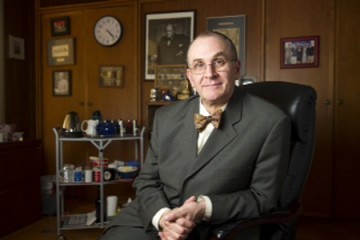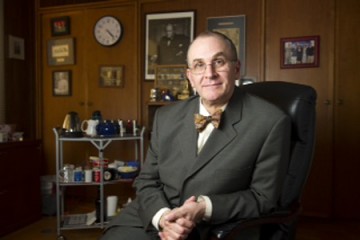Eliot Cohen, director of the strategic studies program at the Johns Hopkins School of Advanced International Studies in Washington, D.C., recently delivered testimony before the Senate Armed Services Committee in which he suggested that an American military force shaped by past conflicts is ill-prepared to deal with future conflicts.

Image caption: Eliot Cohen
"New crises await," Cohen said during his Oct. 22 testimony, "and alas, may not be far off."
Cohen included a full transcript of his testimony in an article he wrote last week for The American Interest on the past, present, and future of the American military. Many U.S. weapons systems and personnel assignments, Cohen testified, "reflect Cold War assumptions about which theaters we planned to fight in, what kind of enemies we thought we might encounter, [and] what kind of missions we would be required to conduct."
Cohen predicts that in the near future, "our problems will be so complex, so large, and so different from the past that we need to design a system that is much better at redesigning and reinventing itself than what we have got." He offers four recommendations for modifying defense policy and organization:
First, he suggests remaking the system for selecting and promoting general officers in order to focus on promoting the best and most creative strategists, rather than appeasing bureaucracy.
Second, he prescribes an overhaul of the system for producing strategy documents, called the Quadrennial Defense Review system, which currently reviews strategies every four years. Cohen argues that military conflict does not "cooperate with our four-year review cycle."
Third, rethinking mobilization, including unconventional practices such as direct commissioning, is a strategy Cohen says is essential in peace time. Military strategists would "require some brave thinking about the kinds of crises that might require such measures," he writes.
Finally, he calls for a renewing interest in professional military education. "Our current professional military education system produces extremely able tacticians and unit leaders," he said. "It does not produce, at least not in large numbers, officers who make their names as deep thinkers about the nature of modern war. Yet surely that is the heart of the military profession."
Posted in Voices+Opinion, Politics+Society
Tagged foreign policy, eliot cohen, military









